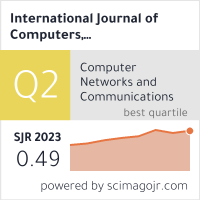An Ontology to Model e-portfolio and Social Relationship in Web 2.0 Informal Learning Environments
Keywords:
semantic web, e-portfolio, social networks, informal learningAbstract
Web 2.0 applications and the increasingly use of social networks have been creating new informal learning opportunities. Students interact and collaborate using new learning environments which are structurally different from traditional e-learning environments. In these informal unstructured learning contexts the boundaries between the learning contexts and social spheres disappear, and the definition of the students competences appears more and more important. In this paper we propose a semantic web approach in order to create the basis for a software platform to model learner profiles.
In particular we propose to extend the FOAF ontology, used to describe people and their personal relationships, with an ontology related to the IMS Learning Portfolio used to model students’ competencies. This ontology could be a fundamental layer for a new Web 2.0 learning environment in which students’ informal learning activities carried out in social networks can be managed and evaluated.
References
M. Castells, The Information Age, Economy, Society and Culture Volume I: The Rise of Network Society, Blackwell, Oxford 1996.
A. Andreatos, Virtual Communities and their Importance for Informal Learning International Journal of Computers, Communications & Control, 2(1):39-47, 2007. http://dx.doi.org/10.15837/ijccc.2007.1.2335
J. Lave and E. Wenger, Situated Learning: Legitimate Peripheral Participation, Cambridge University Press, 1991. http://dx.doi.org/10.1017/CBO9780511815355
L.S. Vigotsky, Mind in Society. Harvard University Press. Cambridge, 1978.
V. Tinto, Classrooms as communities: Exploring the educational character of student persistence, Journal of Higher Education, 68(6):599-622, 1997. http://dx.doi.org/10.2307/2959965
J.G. Breslin, Social Semantic Information Spaces. In S.R. Kruk and B. McDaniel, Semantic Digital Libraries. Springer, 2008.
J. Jung, J. Euzenat, Towards Semantic Social Networks. In Proceedings of the 4th European Semantic Web Conference, Innsbruck, Austria, pp. 267-280, 2007. http://dx.doi.org/10.1007/978-3-540-72667-8_20
A. Ounnas, I. Liccardi, H.C. Davis, D.E. Millard and S.A. White Towards a Semantic Modeling of Learners for Social Networks. In Proceedings of the International Workshop on Applications of Semantic Web Technologies for E-Learning (SW-EL) at the AH2006 Conference, Dublin, Ireland, 2006.
I. Liccardi, A. Ounnas, R. Pau, E. Massey, P. Kinnunen, S. Lewthwaite, M. Midy, C. Sarkar, The role of social networks in students' learning experiences. SIGCSE Bulletin 39(4):224-237, 2007. http://dx.doi.org/10.1145/1345375.1345442
R. Mason, C. Pegler and M. Weller, E-portfolios: An assessment tool for online courses. British Journal of Educational Technology, 35,6, pp. 717-727, 2004. http://dx.doi.org/10.1111/j.1467-8535.2004.00429.x
IEEE P1484.2.1/D8 : Draft Standard for Learning Technology - Public and Private Information (PAPI) for Learners (PAPI Learner) Core Features Sponsored by the Learning Technology Standards Committee of the IEEE Computer Society, 2001.
IMS ePortfolio Practice and Implementation Guide, IMS Global Learning Consortium, 2005.
D. W. Johnson, R. T. Johnson. An educational psychology success story: social interdependence theory and cooperative learning. Educational Researcher, 38(5), 365-379, 2009. http://dx.doi.org/10.3102/0013189X09339057
M. Jensen, Cooperative quizzes in the anatomy and physiology laboratory: A description and evaluation. Advances in Physiology Education, 16(1), S48-S54, (1996).
M. Jensen, D.W.Johnson, R. Johnson, Impact of positive interdependence during electronic quizzes on discourse and achievement. Journal of Educational Research, 95, 161-166, (2002). http://dx.doi.org/10.1080/00220670209596586
T. Matsui, T. Kakuyama, M. Onglatco, Effects of goals and feedback on performance in groups. Journal of Applied Psychology, 72, 407-415, (1987). http://dx.doi.org/10.1037/0021-9010.72.3.407
N. Hwong, A. Caswell, D.W. Johnson, R. Johnson, Effects of cooperative and individualistic learning on prospective elementary teachers' music achievement and attitudes. Journal of Social Psychology, 133, 53-64, (1993). http://dx.doi.org/10.1080/00224545.1993.9712118
D. Mesch, M. Lew, D.W. Johnson, R. Johnson, Isolated teenagers, cooperative learning and the training of social skills. Journal of Psychology, 120, 323-334, (1986). http://dx.doi.org/10.1080/00223980.1986.9712630
D. Mesch, D.W. Johnson, R. Johnson, Impact of positive interdependence and academic group contingencies on achievement. Journal of Social Psychology, 128, 345-352, (1988). http://dx.doi.org/10.1080/00224545.1988.9713751
Published
Issue
Section
License
ONLINE OPEN ACCES: Acces to full text of each article and each issue are allowed for free in respect of Attribution-NonCommercial 4.0 International (CC BY-NC 4.0.
You are free to:
-Share: copy and redistribute the material in any medium or format;
-Adapt: remix, transform, and build upon the material.
The licensor cannot revoke these freedoms as long as you follow the license terms.
DISCLAIMER: The author(s) of each article appearing in International Journal of Computers Communications & Control is/are solely responsible for the content thereof; the publication of an article shall not constitute or be deemed to constitute any representation by the Editors or Agora University Press that the data presented therein are original, correct or sufficient to support the conclusions reached or that the experiment design or methodology is adequate.








